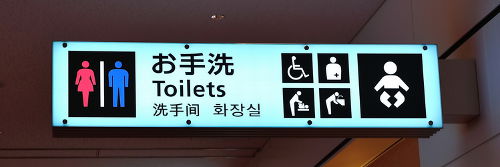The toilets and photocopiers that are out to get you
The toilets and photocopiers that are out to get you

These days, tech dangers can even lurk in the bathroom
Last week news broke of two unexpected yet chilling security dangers, involving rogue photocopiers and high-tech toilets. (Yes, we are well into silly season - can you tell?)
For starters, it turns out your Japanese-style toilet could be vulnerable to attacks from hackers.
An unexpected shower?
Yes, loos from the Land of the Rising Sun have now reached a point where they they have built-in Bluetooth so they can be controlled by your smart phone.
By downloading the free app, you can control the shower and flush functions of a £4,000 toilet made by Japanese firm Lixil. (You can also keep a 'toilet diary' using the app, but we won't go into that.)
But where there's connectivity, there's potential for hackers - no matter whether we're talking about an expensive toilet or an expensive computer.
Problems arise in this case because all models of the super toilet use the same Bluetooth PIN of 0000. This means anyone within Bluetooth range can download the app, connect to your toilet, tap in the PIN and then play havoc with its functions.
No news on whether anyone has actually suffered a toilet attack yet, but with the story occupying top spot on the BBC's 'most shared' list last week, it's surely only a matter of time.
The photocopier that changes your figures
Hot on the heels of these terror toilets came news of the Xerox machine that's been overstepping its authority.
Now, back in the day, photocopiers copied what you told them to. You might have had the occasional paper jam or toner accident, but by and large you got an accurate copy.
Not any more. A bug in several Xerox models means they may alter numbers on the documents they copy. Computer scientist David Kriesel found that his was changing the figures on building plans and other documents.
The problem has been narrowed down to an issue with the compression software used by the machines, and raises all sorts of questions about who would be liable if you sent out an inaccurate photocopy to a client.
Really. Who ever heard of a photocopier making its own edits?
Too clever for its own good?
While there's certainly an element of humour to both these stories, they carry a serious message too.
Everything we own is becoming more connected. In time your fridge, your door locks, your car, your light switches and more could all be on the internet.
There will be benefits to this, but there will certainly be risks as well. A hackable toilet is only the thin end of the wedge, and nobody knows quite how thick it's going to be.
What's more, as machines get smarter in how they do things, they seem to get better at screwing things up too.
In a world where even a simple photocopier can make a hash of copying a document, it's dangerous to assume something is right just because the computer says so.




Comments
Add a comment